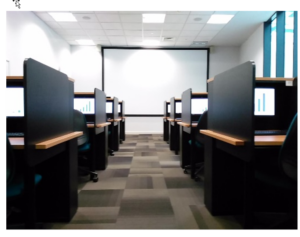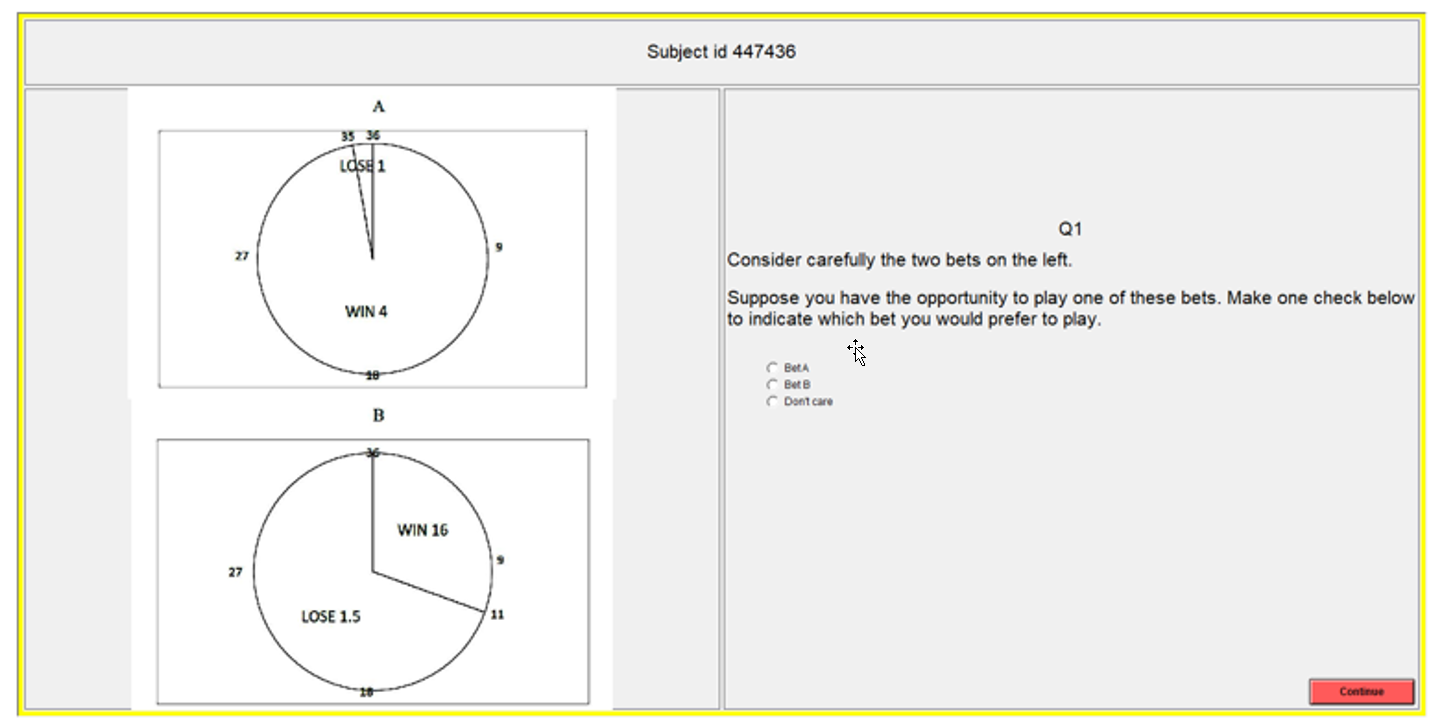Jytte Seested Nielsen (Reader in Economics)
Newcastle University Business School
Faculty of Humanities and Social Sciences
What did you do?
We have integrated economic decision-making experiments into the teaching on the Stage 3 optional module Behavioural Economics and Experimental Methods to encourage experiential learning. This activity consisted of students participating in economics decision-making experiments (sourced from the literature), analysing the data and comparing the results with previous findings. We found that this increased student engagement and received overwhelmingly positive student feedback.
Who is involved?
Dr Till Weber (Lecturer on ECO3005 and NUBS Experimental and Behavioural Economics Lab lead) and Dr. Jytte Seested Nielsen (Module leader on ECO3005). Students on ECO3005.

NUBS Experimental and Behavioural Economics Lab
How did you do it?
We sourced a total of four economic experiments from the literature. They were coded using the programme z- tree. As part of the teaching, students took part in decision-making experiments utilising the Behavioural and Experimental lab in NUBS (http://benc.ac.uk/facilities/). Some tasks from all experiments were incentivised (using eg. chocolates) which is in line with conventions in experimental economics. The data (anonymous) was afterwards uploaded to Canvas along with some questions for the students to answer before the next lecture. During the lecture, further questions (for group work) were handed out where students were guided to carry out an analysis of the data. Finally, we compared the results with previous results found in the literature.
An example of the experimental task and the result table produced is included below. This example replicates the experiment by Grether & Plott 1979; Economic Theory of Choice and the Preference Reversal Phenomenon, The American Economic Review 69(4); 623-638.
Classroom experiment in NUBS Experimental and Behavioural Economics Lab

Discussion of experimental results. These were afterwards compared with results from Grether & Plott 1979
Reservation prices |
||||
Bet |
Choices |
Consistent |
Preference reversal |
|
Total |
P | 129 | 28 | 101 |
| $ | 157 | 135 | 22 | |
| indifferent | 2 | 2 | ||
| 288 | 163 (57%) | 125 (43%) | ||
Why did you do it?
We find that economic experiments promote engagement in the module and encourage active learning. In our lectures, we frequently use the results of the classroom experiments as a starting point for a short discussion and invite student to share their experiences. Experiencing economic decision-making problems first-hand consolidates their understanding and prepare them for the assessment.
Does it work?
In our experience, students were more ready to engage and discuss their recent concrete experience in the classroom experiment compared to other parts of the lectures during which we asked students to answer more abstract questions. We have had very good student feedback on the use of experiments and how it has made the students understand them and their implications. The module has doubled in size since it was introduced around 10 years ago. Other economics colleagues have since introduced experiments in their teaching and experiments will also be integrated into the new Behavioural and Experimental Economics MSc (first entry AY 2023/24).
The Graduate Framework
The experiments demonstrated the following attributes:
- Digitally capable
- Curious
- Collaborative
- Engaged
- Critical thinker
